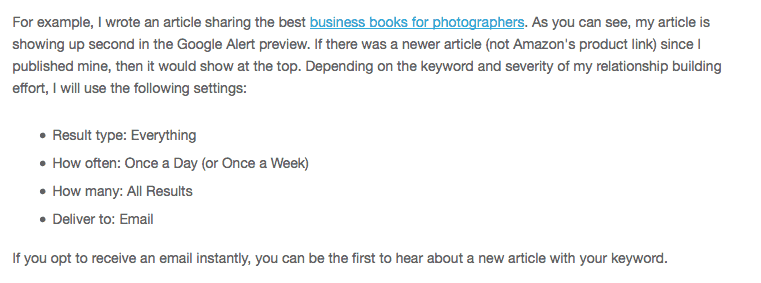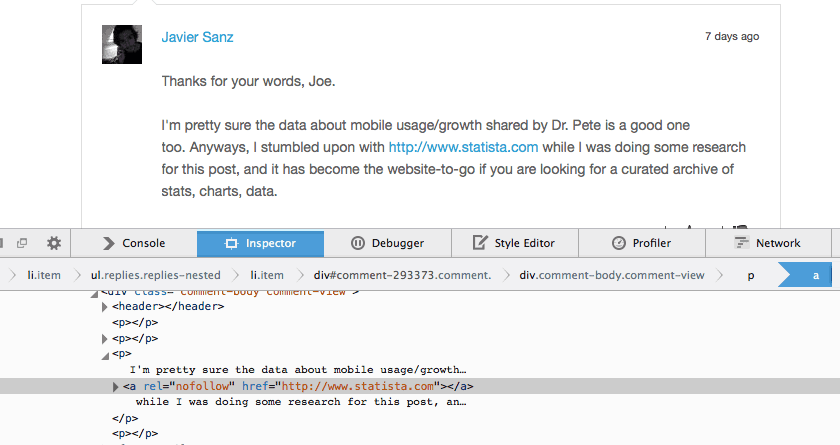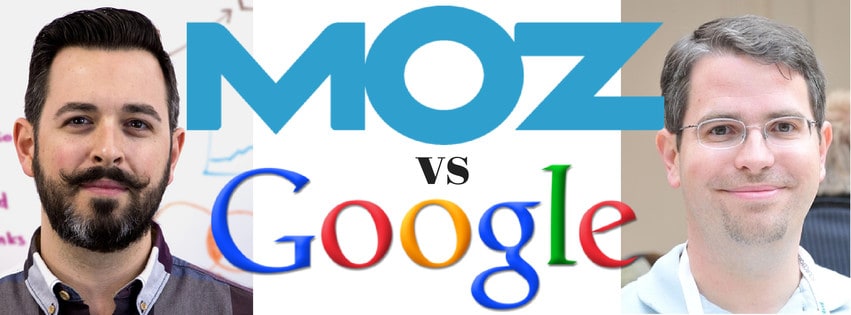Before I get started, I want to make it clear that I am an avid fan of Rand Fishkin and the Moz community; their ethical approach to SEO and the TAGFEE ethos is both highly commendable and genuinely enriching for the wider Internet community. This article does not set out to belittle or condemn any of the valuable journalistic and research-led work that Moz produces.
With that said, it is becoming increasingly frustrating to read updates on Fishkin’s shock when Google penalizes his/related sites. Take his latest Tweet and Moz blog post, for example.
That feeling I get when Google Webmaster Tools' tells someone a totally legit link is "inorganic": pic.twitter.com/7fd773enyG
— Rand Fishkin (@randfish) July 22, 2014

Unfortunately, Moz, Fishkin and many of their followers seem to assume that Google, one of the world’s largest and most powerful corporations, will hold the same TAGFEE values (transparent, authentic, generous, fun, empathetic, exceptional) they do.
You see, Google’s “quality guidelines” are nothing more than a PR document set out to create a certain image. Yes, Google want you to think they are transparent and ethical and completely “focused exclusively on solving search problems“, but in reality they are 100% committed to increasing the bottom line.
Google will never follow TAGFEE, nor will they ever be “fair”; anything can and will violate Google’s Quality Guidelines. And here’s why.
Nice Guys Finish Last

In Q2 of 2014, Google published a 22% rise in revenue, bringing the gross figure to $15.96 billion. You can read the complete breakdown here. At the end of January 2014, Moz released a detailed financial breakdown of the company, reporting an overall $5.7 million loss. It’s clear to see that we’re talking about two very different companies here and the one that is genuinely committed to user experience doesn’t make any money. In fact, they lose a ton of it. The company that pretends to care about UX, on the other hand, is raking it in.
As part of their company philosophy, Google makes many dramatic statements, such as “You can make money without doing evil” and “great just isn’t good enough”, and holds wild fanasies about their intentions:
Whether we’re designing a new Internet browser or a new tweak to the look of the homepage, we take great care to ensure that they will ultimately serve you, rather than our own internal goal or bottom line. Our homepage interface is clear and simple and pages load instantly. Placement in search results is never sold to anyone and advertising is not only clearly marked as such, it offers relevant content and is not distracting.
By using micro-text saying “advertisement” or “sponsored result”, Google purports to be an ethical pioneer, making the world a better place. To be honest, I (and 67% of other online searchers) agree that Google is the most user-friendly, attractive and fruitful search engine in existence. It’s easy to forget, therefore, that this product is just that, a product. Google know their market – searchers want a clean and reliable service and that’s what they provide. Google is dedicated to providing the best search results to its users because it helps them retain and grow market share. In fact, it’s a vital part of their business model.
Profiting From Chaos
Does Google care about Webmasters and SEOs getting a fair shot at Page 1 results? Hell no! And why would they? AdWords, launched in 2000, is Google’s primary revenue source. Despite the numerous “help” documents and best practice guidelines Google produce, their sole aim, when it comes to dealing with Webmasters, is to sell more AdWord campaigns. All the training, tools (especially Analytics and Webmaster Tools) and resources are there to aid the process along. Moz, on the other hand, produces a wealth of what I’d call “stand-alone resources”. Yes, they promote their analytics tools and pro accounts, but their blog, Whiteboard Friday series and learning guides are accessible to everyone.
Now I’m not privy to any of the inner workings of Google and its Web Spam Team, but the more unstable and unpredictable the numerous animal-ed search algorithms become, the more money is spent on AdWords. This trend has continued for years. Let’s put it another way: the less genuinely useful Google’s Webmaster documents become, the more money the company makes. Does this sound like a company dedicated to helping people?
Let’s get back to the matter in hand – why does Moz and Rand continue to praise, cooperate with and pander to Google’s sketchy demands guidelines?
There’s One Rule In Google Club…

There’s only one rule in Google Club – don’t talk about the rules. Instead, let’s use ambiguous and generic terminology like “guidelines” and “best practices”. Instead of “must”, we hear “should”; in place of “definitely”, we get “recommended”. The bottom line is, there is not (nor will there ever be) a clear, direct, fool-proof, one-fits-all document to getting ranked on Google (or any search engine for that matter).
If SEO was like Fight Club, Rand Fishkin would be Edward Norton, engaged in a hopeless battle against Google’s Tyler Durden. Let’s forget the film’s ending for a minute – can Norton ever overcome Durden’s hold on him? No! Why? Because he’s fictional. Tyler Durden, in the SEO world, is Google’s Quality Guidelines. You think you know what they are, but they keep evolving just out of reach. BECAUSE THEY DON’T REALLY EXIST.
Links From YouMoz Can Violate Google’s Quality Guidelines
In a Moz blog post today, Rand Fishkin wrote an open letter to Google titled: Dear Google, Links from YouMoz Don’t Violate Your Quality Guidelines. In the piece, he gets offended by a Google guideline violation notice that Moz contributer Scott Wyden received in WMT. Wyden’s personal blog, http://scottwyden.com received a notice about inorganic links, with 3 examples given (posted below, the red text was added by Scott himself).

Rand took particular issue with the third link, http://moz.com/ugc/build-relationships-not-links, from the YouMoz section of the site. In response, he posts:
As founder, board member, and majority shareholder of Moz, which owns Moz.com (of which YouMoz is a part), I’m here to tell Google that Scott’s link from the YouMoz post was absolutely editorial. Our content team reviews every YouMoz submission. We reject the vast majority of them. We publish only those that are of value and interest to our community. And we check every frickin’ link.
Despite the protest, it’s easy to see how (and why) Google might see YouMoz post links as guest post spam. Here’s a breakdown of the Scott Wyden example:
-
YouMoz is exclusively for guest posts.
This fact is made clear the by the disclaimer placed below each post (” This entry was written by one of our members and submitted to our YouMoz section.The author’s views below are entirely his or her own and may not reflect the views of Moz.”). The YouMoz url is also under the “ugc” directory, otherwise known as User Generated Content, aka not editorial.
Guest posting as an SEO practice has recently been condemned by Google, and widely reported. According to those infamous Quality Guidelines, guest posting is one example of a link scheme, especially if it uses “keyword-rich anchor text links“.

-
Scott used a “keyword-rich anchor text link” in his guest post
Although the link has now been removed, Google’s cache (posted above) shows us that Scott used the exact-match keyword anchor “best business books for photographers”, with a link to “http://scottwyden.com/business-books-for-photographers/”. As you can see, the linked page is optimised for that exact longtail keyword so Google understandably spotted it as “unnatural”. What’s more, the content of the page is completely off-topic and is only loosely linked to the article, under the guise of an “example”.
The text “Photographers SEO Community” was also used as the anchor for Scott’s link to his site http://photographers-seo.com. Aside from using an partial-match domain (and forgetting the apostrophe in photographer’s), the link could be seen an spammy because it’s neither contextual nor related to the article topic. Yes, his the site is about SEO, but that’s a pretty generic connection.
[highlight color=”eg. yellow”]UPDATE: Scott confirmed in the comments section that he does not own nor manage http://photographers-seo.com[/highlight]
-
The guest post links are dofollow
As YouMoz has its nice little disclaimer about not being responsible for the views of its authors, why does it insist on giving dofollow links? Yes, Rand might check every frickin’ link, but doing so does not make the content any less of a guest post and, as such, Google’s guidelines don’t need to be analysed in much detail to see the problem here.
It’s interesting to note that Scott’s offending YouMoz post went live way back in October 2012. Perhaps, at the time, these practices were harder for Google to take down. In mid-2014, that’s obviously not the case.
Some Advice For YouMoz
YouMoz makes up a significant portion of Moz’s overall output. What’s more, it brings a lot of SEO professionals to the site for one, sneaky, reason. Yup – FREE LINKIES! We can pretend all we want about “enriching communities” and “sharing our knowledge” but at the end of the day, I’d hazard a guess that 100% of all YouMoz posts are written for self-promotional purposes. Some of that promotion comes from SEO (in the form of a nice link or 2 from an authority site), but the rest comes from community outreach, building reputation and engaging with peers. It’s the latter that YouMoz needs to focus on.
I believe that Moz made a conscious decision to allow dofollow links on YouMoz to encourage SEOs to write good quality content (for free, duh). The link is the payment. Yes, Moz polices the content to ensure it’s of high-enough quality to avoid diluting their brand presence and SEO efforts. Nofollow link attributes should have been a no-brainer but would have undoubtedly discouraged writers, especially several years ago.

As you can see above, Moz comments are nofollow as standard; it is my opinion that all YouMoz links should be nofollow too, in order to avoid guest post penalties in the future and preserve the importance of the blog as a outpost for knowledgeable professionals.
Will people still write for YouMoz? Of course they will. Moz has earned itself a position as knowledge leader in a competitive field. Part of that status came from being early to the game, but has since been sustained thanks to its genuine dedication to TAGFEE. Guest blogging on Moz will always carry a badge of honour.
In summary, let us never forget Google’s real code of ethics: ROE – Revenue Over Everything. The Quality Guidelines will always remain just out-of-reach enough to get all site owners to up their AdWords spend. What you think is acceptable today might bite you in the SEO ass 2 years from now. Even if you are Rand Fishkin.

